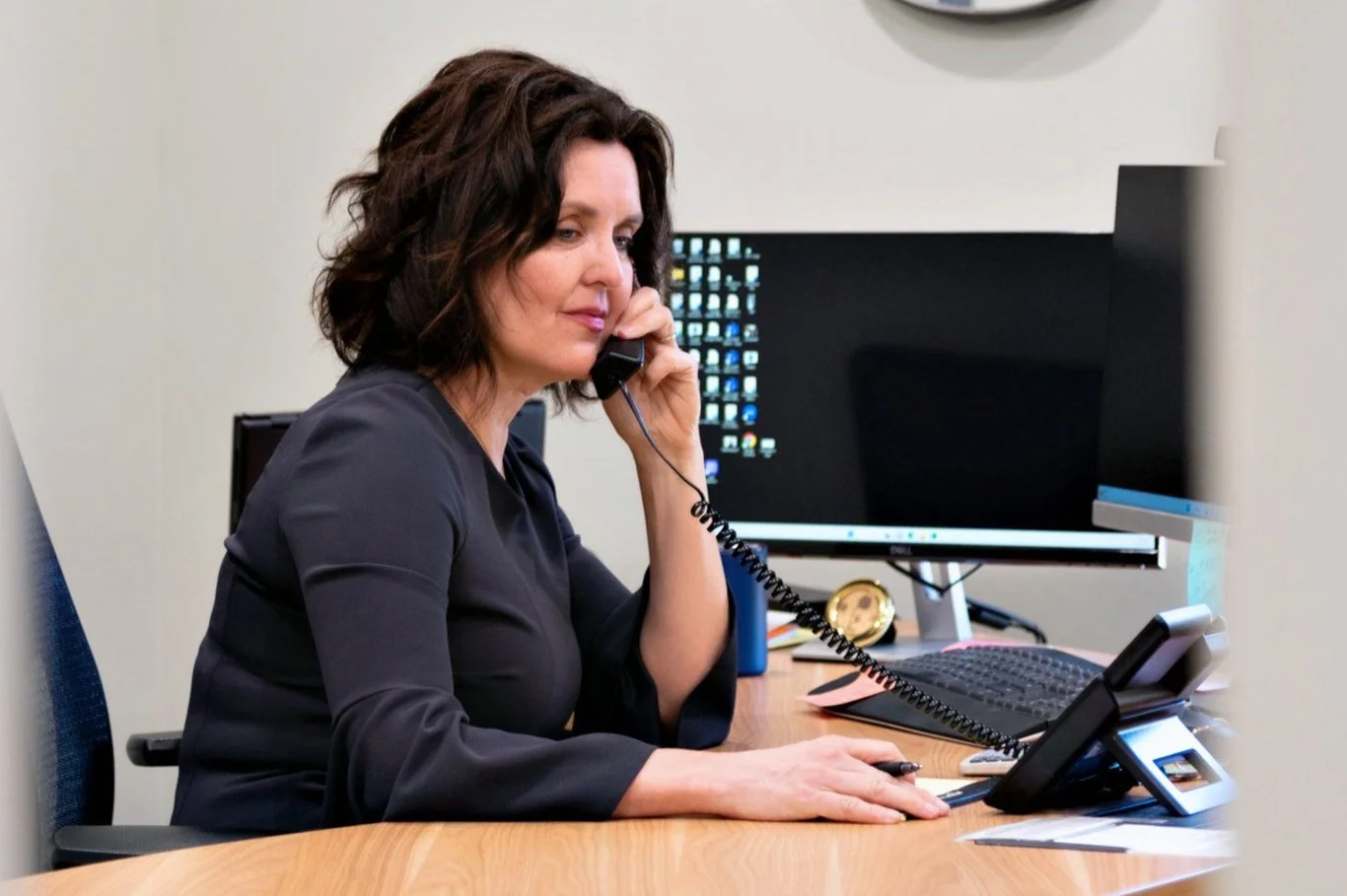Divorce Without the Courtroom
When a marriage or partnership ends, it is common to picture a courtroom - a judge at the front and attorneys speaking for each side. In the end, decisions are made by someone who does not know the family. For some people, that route is necessary, especially when safety is at stake or when one person will not participate in good faith. Thankfully, litigation is not the only way forward.
There are other approaches that keep the decision-making in the hands of those most affected. They can be quieter, more private, and often more respectful. They can also set the tone for how people work together long after the paperwork is signed, which matters a great deal when children are involved. Our work outside the courtroom centers on three approaches: collaborative divorce, collaborative mediation, and mediation.
Collaborative Divorce
Collaborative Divorce is a structured process where both parties commit to resolving their divorce without going to court. Each person has their own collaboratively trained attorney who provides legal guidance and support throughout the process. A neutral coach helps manage communication and keep discussions productive. If there are children, a child specialist gives them a voice and helps parents create parenting plans that focus on their well-being. A financial specialist may also be involved to address property division, budgets, and planning for the future. The emphasis stays on developing solutions that work for the long term and on maintaining a respectful process that supports constructive relationships in the future, especially when children are involved.
Collaborative Mediation
Collaborative Mediation was developed by Theresa Loughran, partner, mediator, and collaborative attorney. This approach blends elements of both mediation and collaborative divorce into one streamlined process. Theresa acts as a neutral mediator, guiding both parties toward resolution in a transparent and respectful manner. When agreements are reached, one attorney is brought in to complete the legal documents, often resulting in what is essentially an uncontested divorce. This method allows participants to benefit from the problem-solving strengths of mediation while keeping the supportive structure of collaborative practice. As with collaborative divorce, other professionals such as child specialists, coaches, or financial specialists may be brought in as needed to help create durable agreements.
Mediation
Mediation offers another way for people to resolve their divorce without stepping into a traditional courtroom. In mediation, a neutral mediator works with both parties to reach agreements on issues like property division, parenting plans, and financial arrangements. The mediator facilitates conversation, helps identify options & brainstorms solutions while keeping discussions focused. Mediation is often less formal than collaborative divorce or collaborative mediation, but it still provides space for open dialogue and mutual decision-making. It can be an effective path for those who are able to communicate reasonably well and who want to maintain control over the terms of their agreement.
Preserving Dignity and Respect in Divorce
Each of these approaches can help preserve dignity during what is often a painful and stressful time. They offer privacy and flexibility, and they allow families to shape agreements that truly fit their needs rather than accepting a one-size-fits-all decision from the bench. They also tend to be less adversarial, which is especially important when children are part of the picture. The way a divorce is handled can set the tone for many years of co-parenting, and starting from a place of respect and problem-solving can make that future far easier to navigate.
When Litigation Is the Right Choice
Not every situation can or should avoid the courtroom. There are circumstances where litigation is the right or only choice. But when it is possible to work together, these out-of-court options give people the chance to move on without the lasting harm that can come from a drawn-out, combative process. Alternative dispute processes allow space for listening, understanding, and compromise, all of which can make it easier to build a stable future after the marriage ends.
A Resolution-Focused Divorce Story
Whether through collaborative divorce, collaborative mediation, or mediation, the goal is the same: to create agreements that support the people involved and lay the groundwork for the next chapter. It is a different kind of divorce story, one where respect leads the way and resolution is possible without a fight.
Ready to explore your options?
Talk with our team about collaborative divorce, collaborative mediation, or mediation. Your first step is a conversation.
Collaborative Divorce, Collaborative Mediation, and Mediation FAQs
What is collaborative divorce? ▸
Collaborative divorce is a structured and private process where both parties agree not to go to court. Each person has a collaboratively trained attorney. Neutral professionals such as a coach, child specialist, or financial specialist can be involved to support communication and long term solutions.
What is collaborative mediation? ▸
Collaborative mediation blends mediation with collaborative practice. A neutral mediator guides both parties toward resolution in a transparent process. When agreements are reached, one attorney prepares the legal documents, often resulting in what is essentially an uncontested divorce.
How is mediation different from collaborative divorce? ▸
In mediation a neutral mediator facilitates conversation and helps the parties reach agreements. Collaborative divorce includes two collaboratively trained attorneys and may add neutral professionals for communication, parenting, and financial guidance.
Which approach is right for me? ▸
It depends on safety, willingness to participate in good faith, and the level of support you want. Mediation can fit couples who communicate reasonably well. Collaborative options add structure and a professional team. Litigation is appropriate when safety or fairness cannot be ensured.




